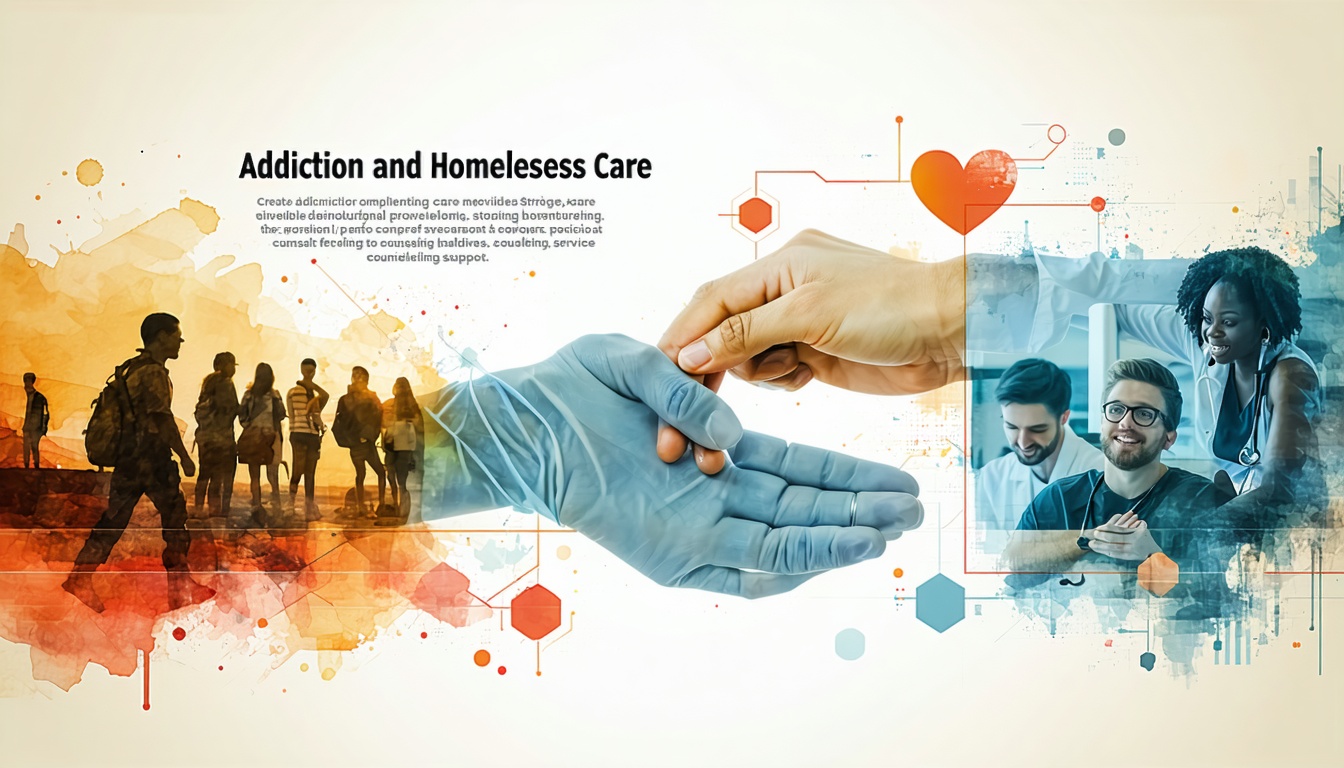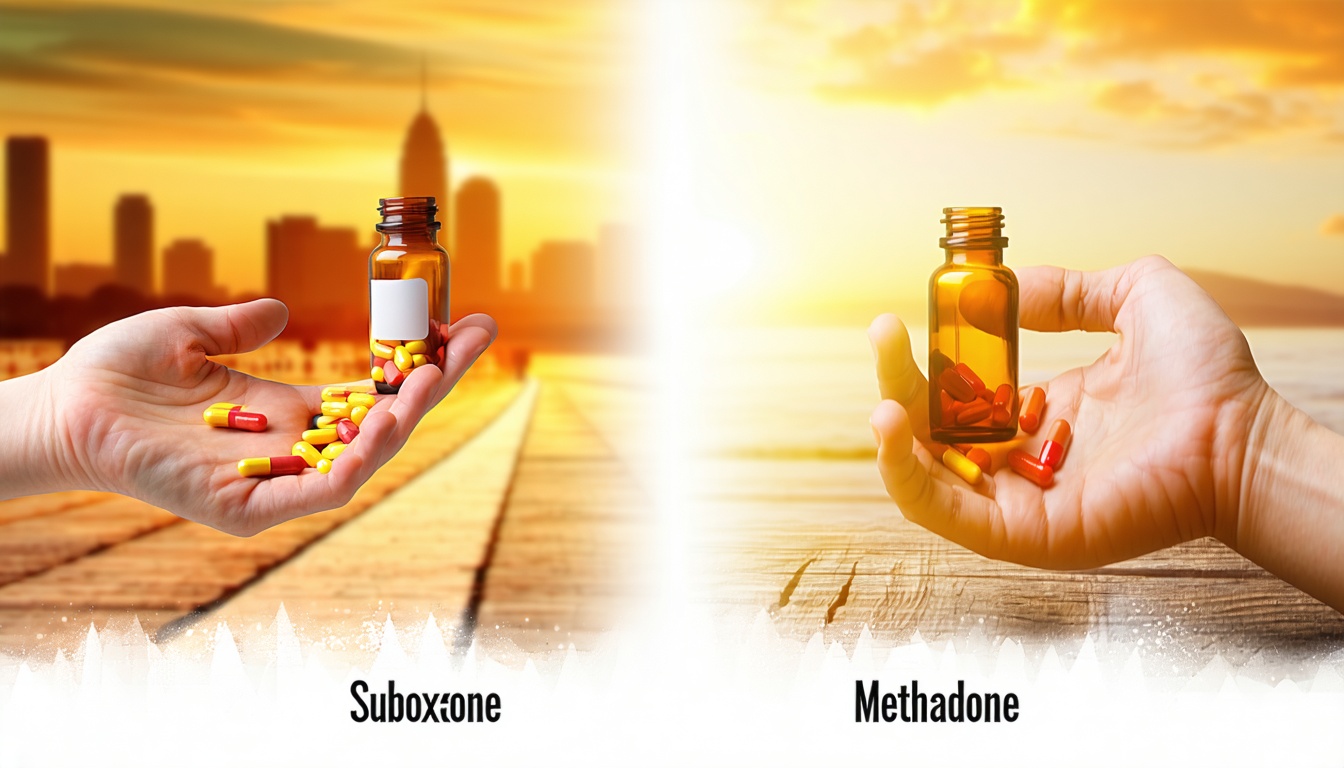Understanding ADHD and Substance Use Disorders
To effectively address the challenges associated with ADHD and substance use disorders, it’s important to first understand each condition individually. This foundational knowledge helps us better grasp their complexities and the connection between ADHD and substance use disorders.
Overview of ADHD
Attention-Deficit/Hyperactivity Disorder (ADHD) is a neurodevelopmental disorder that typically manifests in childhood. It is characterized by persistent patterns of inattention, hyperactivity, and impulsivity. These symptoms can significantly impact various aspects of life, including academic performance, social interactions, and occupational functioning.
Key Symptoms of ADHD
| Symptom | Description |
|---|---|
| Inattention | Difficulty sustaining focus, disorganization, forgetfulness |
| Hyperactivity | Excessive talking, inability to sit still, restlessness |
| Impulsivity | Interrupting others, difficulty waiting turns, risk-taking behaviors |
ADHD symptoms can persist into adulthood, affecting daily activities and increasing susceptibility to other disorders, such as substance use disorders. For more on how ADHD impacts daily life, visit our article on self-care strategies for managing mental health in recovery.
Overview of Substance Use Disorders
Substance Use Disorders (SUDs) are characterized by the recurrent use of alcohol or drugs that cause significant clinical and functional impairments. These include health problems, disability, and failure to meet major responsibilities at work, school, or home.
Signs of Substance Use Disorders
| Sign | Description |
|---|---|
| Craving | Strong desire or urge to use substances |
| Loss of Control | Inability to limit intake |
| Withdrawal | Physical or psychological symptoms when not using |
| Tolerance | Needing larger amounts to achieve the same effect |
Individuals with SUDs often struggle with additional mental health issues such as depression and anxiety. For more information, check our article on managing depression and anxiety during addiction treatment.
Understanding the basics of ADHD and SUDs sets the stage for exploring how these conditions intersect. This understanding is crucial for those in need or who know someone in need of mental health and behavioral health services. For more on dual diagnosis, visit our article on understanding dual diagnosis: when mental health and addiction intersect.
The Connection Between ADHD and Substance Use Disorders
Understanding the interplay between ADHD and substance use disorders (SUD) is crucial for providing effective care. Here, we explore common risk factors and how the symptoms of ADHD can lead to substance misuse.
Common Risk Factors
Both ADHD and substance use disorders share several common risk factors. Recognizing these can help in understanding the connection between the two conditions. These risk factors include:
- Genetics: There is a hereditary component that makes individuals with ADHD more susceptible to developing SUD.
- Environmental Stressors: Exposure to high-stress environments during childhood can increase the likelihood of both ADHD and substance misuse.
- Impulsivity: A hallmark of ADHD, impulsivity can lead individuals to engage in risky behaviors, including experimenting with substances.
- Social Challenges: Difficulties in social situations often faced by those with ADHD can lead to substance use as a coping mechanism.
| Risk Factor | Common in ADHD | Common in SUD |
|---|---|---|
| Genetics | Yes | Yes |
| Environmental Stressors | Yes | Yes |
| Impulsivity | Yes | Yes |
| Social Challenges | Yes | Yes |
How ADHD Symptoms Can Lead to Substance Use
ADHD symptoms can directly contribute to the development of substance use disorders. Understanding these pathways is essential for addressing both conditions effectively.
- Impulsivity and Risk-Taking: ADHD is often characterized by impulsive actions and a tendency toward risk-taking behavior. These traits can lead to early experimentation with drugs or alcohol, potentially escalating into substance misuse.
- Self-Medication: Individuals with ADHD may turn to substances as a form of self-medication to alleviate symptoms such as inattention, hyperactivity, and mood instability. This can be particularly true for those who have not been adequately diagnosed or treated.
- Academic and Social Pressures: Struggles with school performance and social interactions are common in those with ADHD. These challenges may result in increased stress and anxiety, driving some to use substances as a way to cope.
- Impaired Judgment: ADHD can affect one’s ability to foresee the long-term consequences of their actions. This impaired judgment may increase the likelihood of substance use and the development of a disorder over time.
| ADHD Symptom | Role in Substance Use |
|---|---|
| Impulsivity and Risk-Taking | Early experimentation |
| Self-Medication | Alleviate symptoms |
| Academic and Social Pressures | Coping mechanism |
| Impaired Judgment | Increase likelihood |
Addressing both ADHD and SUD requires a comprehensive approach that considers these interconnected factors. Integrated treatment programs often provide a multifaceted approach to care. To learn more about effective treatments, read our article on integrated treatment programs for dual diagnosis.
For individuals dealing with these challenges, professional guidance can be an invaluable resource. Check our resources on managing depression and anxiety during addiction treatment and self-care strategies for managing mental health in recovery for more information.
Challenges Faced by Individuals with ADHD and Substance Use Disorders
Managing both ADHD and Substance Use Disorders (SUD) can be especially challenging due to the complex interactions between these conditions. Recognizing and understanding these challenges is crucial for anyone seeking to support themselves or others through recovery.
Dual Diagnosis
Dual diagnosis refers to the coexistence of a mental health disorder, such as ADHD, and a substance use disorder. Individuals with ADHD are at a higher risk of developing SUD due to various factors, including impulsivity, difficulty managing stress, and seeking quick relief from distressing symptoms.
When dealing with dual diagnosis, one of the major challenges is that both conditions can exacerbate each other. For instance, drug use can worsen ADHD symptoms, while untreated ADHD may lead to increased substance use as a form of self-medication. Effective treatment requires addressing both conditions simultaneously, which is why integrated treatment programs are vital. You can read more about the importance of treating co-occurring disorders in our article on understanding dual diagnosis: when mental health and addiction intersect.
Interactions between ADHD and Substance Use
ADHD symptoms such as impulsivity, inattention, and hyperactivity can make it more challenging to adhere to a treatment plan for SUD. Conversely, substance use can impair cognitive functions, making it harder for individuals with ADHD to manage their symptoms effectively.
Here are some of the ways ADHD and substance use interact:
- Impulsivity: Individuals with ADHD often act without thinking, which can lead to rash decisions like substance use.
- Inattention: Difficulty focusing can hinder participation in treatment programs.
- Hyperactivity: Restlessness may drive individuals to seek substances as a way to calm themselves.
Table: Interaction of ADHD Symptoms with Substance Use
| ADHD Symptom | Impact on Substance Use |
|---|---|
| Impulsivity | Likely to try substances without considering consequences |
| Inattention | Difficulty in adhering to treatment plans |
| Hyperactivity | Using substances to manage restlessness |
For more about how this dual nature affects recovery, check out our article on trauma and addiction: how past experiences impact recovery.
Recognizing these challenges allows us to better support those facing the dual battle of ADHD and substance use disorders. By understanding the unique difficulties of this intersection, we can encourage the use of integrated treatment approaches that address both conditions concurrently, leading to more effective recovery outcomes. Learn more about effective strategies in breaking the cycle: healing from addiction and mental health struggles.
Treatment Approaches for Dual Diagnosis
When addressing the intersection of ADHD and substance use disorders, it is crucial to adopt comprehensive treatment approaches that tackle both issues concurrently. This section discusses integrated treatment programs and behavioral therapies as effective methods for managing dual diagnosis.
Integrated Treatment Programs
Integrated treatment programs are designed to provide simultaneous care for both ADHD and substance use disorders. These programs combine mental health and addiction treatment services within a cohesive plan, ensuring that individuals receive a balanced approach to their recovery.
Benefits of Integrated Treatment Programs:
- Holistic Care: Address both ADHD and substance use disorders together.
- Coordinated Services: Streamlined care reduces the risk of fragmented treatment.
- Improved Outcomes: Better success rates due to comprehensive approach.
| Aspect of Treatment | Traditional Treatment | Integrated Treatment |
|---|---|---|
| Focus | Single disorder | Dual diagnosis |
| Coordination | Separate mental health and addiction services | Combined, streamlined care |
| Treatment Plan | Fragmented | Holistic |
| Examples of Services | Individual therapy, group therapy | Medication management, combined therapies, support groups |
Behavioral Therapies
Behavioral therapies are central to treating individuals with dual diagnosis. These therapies help manage ADHD symptoms while also addressing substance use behaviors. Popular behavioral therapies include Cognitive Behavioral Therapy (CBT) and Dialectical Behavior Therapy (DBT).
Cognitive Behavioral Therapy (CBT)
CBT focuses on identifying and changing negative thought patterns that contribute to both ADHD symptoms and substance use. Learn more about how CBT addresses addiction in our article on how cognitive behavioral therapy (cbt) helps address addiction.
| CBT Focus Areas | ADHD | Substance Use |
|---|---|---|
| Thought Patterns | Managing impulsivity | Understanding triggers |
| Behavioral Changes | Developing organizational skills | Coping with cravings |
| Emotional Regulation | Enhancing emotional control | Managing stress |
Dialectical Behavior Therapy (DBT)
DBT is another effective therapy, particularly for managing emotional dysregulation associated with both ADHD and substance use disorders. It combines cognitive behavioral techniques with mindfulness strategies. Explore the role of emotional regulation in our article on the role of emotional regulation in substance abuse treatment.
| DBT Components | Focus for ADHD | Focus for Substance Use |
|---|---|---|
| Mindfulness | Increasing focus and attention | Staying present to manage cravings |
| Distress Tolerance | Reducing reckless behavior | Enhancing ability to handle stress without substances |
| Emotional Regulation | Healthy ways to experience emotions | Managing emotional triggers |
Behavioral therapies, in combination with integrated treatment programs, offer a comprehensive approach to managing dual diagnosis. This dual focus ensures that both the ADHD and substance use disorders are addressed simultaneously, improving the chances of a successful recovery. For further guidance on dual diagnosis and its treatment, check out our detailed piece on understanding dual diagnosis: when mental health and addiction intersect.
Importance of Seeking Help
Addressing the intersection between ADHD and substance use disorders is crucial for improving mental health and overall wellbeing. Seeking help can significantly enhance the quality of life for individuals dealing with these co-occurring conditions.
Breaking the Stigma
Stigma surrounding ADHD and substance use disorders often prevents individuals from seeking the help they need. It is essential to recognize that these conditions are medical issues that require professional care and support. By breaking the stigma, we can encourage more people to take the necessary steps towards recovery.
The Impact of Stigma on Seeking Help
| Factor | Impact |
|---|---|
| Internalized Stigma | Lower self-esteem, increased shame |
| Public Stigma | Social exclusion, discrimination |
| Structural Stigma | Barriers to accessing care, underfunding of services |
Breaking the stigma involves educating ourselves and the public about the realities of ADHD and substance use disorders. Promoting understanding and acceptance can lead to earlier intervention and better outcomes. For more information on understanding the importance of comprehensive care, visit our article on understanding dual diagnosis: when mental health and addiction intersect.
Encouraging Support and Understanding
Support from family, friends, and the community plays a vital role in the recovery process. Understanding the unique challenges faced by those with ADHD and substance use disorders can help in offering the right kind of support.
Forms of Support
- Emotional Support: Providing empathy, encouragement, and understanding.
- Practical Support: Assisting with daily tasks and appointment scheduling.
- Informational Support: Sharing knowledge about treatment options and coping strategies.
Encouraging positive interactions and support networks can make a substantial difference. It fosters a safe environment where individuals feel valued and understood. To learn more about how support can aid in recovery, check out our article on managing depression and anxiety during addiction treatment.
Seeking professional help is equally important. Mental health and behavioral health services, such as those provided by Vegas Stronger in Las Vegas, NV, offer specialized programs tailored to individuals with ADHD and substance use disorders. These services include behavioral therapies, integrated treatment programs, and other supportive interventions that address the unique needs of individuals facing these dual diagnoses.
Visit the following articles for more on how various therapies and support mechanisms contribute to the recovery process:
- how cognitive behavioral therapy (cbt) helps address addiction
- the role of emotional regulation in substance abuse treatment
Encouraging support and understanding from all fronts can significantly enhance the journey towards recovery and better mental health.
Resources for Individuals with ADHD and Substance Use Disorders
Providing resources for individuals navigating the intersection of ADHD and substance use disorders is pivotal in fostering a supportive and effective recovery journey. Here, we outline key resources including support groups and professional services.
Support Groups
Support groups play a critical role in the journey of individuals dealing with both ADHD and substance use disorders. These groups create a community where members can share their experiences, challenges, and successes, fostering an environment of mutual support and understanding. Participating in support groups can significantly enhance emotional well-being and offer practical strategies for managing both conditions.
| Support Group Type | Focus | Accessibility |
|---|---|---|
| Peer-Led Support Groups | Sharing personal experiences and strategies | In-person or virtual |
| Therapist-Led Groups | Structured guidance and psychological support | In-person or virtual |
| Specialty Groups | Focused on dual diagnosis of ADHD and substance use | In-person or virtual |
For more information on how emotional support can aid recovery, visit our article on self-care strategies for managing mental health in recovery.
Professional Services
Professional services are essential for providing specialized care to individuals with ADHD and substance use disorders. These services often include integrated treatment programs and various therapeutic approaches tailored to address the unique challenges posed by dual diagnosis.
- Integrated Treatment Programs: These programs offer a comprehensive approach that addresses both ADHD and substance use disorders simultaneously. For more insights, read our article on understanding dual diagnosis: when mental health and addiction intersect.
- Behavioral Therapies: Behavioral therapies, such as Cognitive Behavioral Therapy (CBT), can be highly effective in treating dual diagnoses. CBT helps individuals develop coping strategies, identify and change negative thought patterns, and improve emotional regulation. Learn more in our article on how cognitive behavioral therapy (cbt) helps address addiction.
| Professional Service | Focus Area | Benefit |
|---|---|---|
| Psychiatrists | Medication management for ADHD and substance use | Medical oversight and treatment adjustments |
| Psychologists | Behavioral therapies and counseling | Emotional support and therapeutic interventions |
| Addiction Specialists | Substance use treatment and recovery strategies | Expertise in addiction management |
Additionally, understanding the psychological aspects of recovery can be crucial, especially considering the interactions between ADHD and substance use. Articles like the role of emotional regulation in substance abuse treatment and how therapy can rebuild self-esteem after addiction provide further valuable insights.
By leveraging both support groups and professional services, individuals with ADHD and substance use disorders can access the comprehensive care they need. These resources not only aid in managing symptoms but also foster long-term recovery and improved quality of life.

















